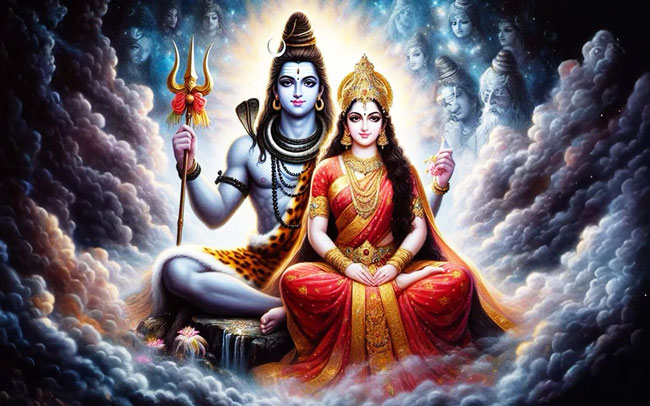 Pradosh Vrat is a significant occasion in Hinduism, dedicated to seeking the blessings of Lord Shiva and Goddess Parvati. This vrat (fasting ritual) is observed on the 13th day of both the Krishna and Shukla Paksha (dark and bright lunar fortnights) of every month. A total of 24 Pradosh Vrats occur in a year, with two each month—one on the Krishna Paksha and one on the Shukla Paksha.
Pradosh Vrat is a significant occasion in Hinduism, dedicated to seeking the blessings of Lord Shiva and Goddess Parvati. This vrat (fasting ritual) is observed on the 13th day of both the Krishna and Shukla Paksha (dark and bright lunar fortnights) of every month. A total of 24 Pradosh Vrats occur in a year, with two each month—one on the Krishna Paksha and one on the Shukla Paksha.
Importance of Pradosh Vrat in the Falguna Month
Among the 24 Pradosh Vrats, the one observed in the Falguna month holds great significance. This vrat is believed to be especially auspicious for obtaining happiness, prosperity, and blessings from Lord Shiva. The Pradosh Vrat of the Shukla Paksha of Falguna falls on March 11th this year. On this day, the worship of Lord Shiva and Goddess Parvati is extremely important, and performing prayers during the Pradosh period is considered highly auspicious.
Significance of the Pradosh Kal (Time Period)
Pradosh Kal refers to the period of twilight, which begins approximately 45 minutes before sunset. This time is considered particularly beneficial for performing the worship of Lord Shiva. Praying during this period is believed to bring the fulfillment of desires and the attainment of auspicious results.
Benefits of Observing Pradosh Vrat
- Observing this vrat helps in attaining progeny (children).
- It brings blessings from Lord Shiva and Goddess Parvati.
- Those facing problems in their career can overcome them and receive blessings for a long life.
Offering Prasadam (Food) to Lord Shiva
It is customary to offer specific foods like Halwa, Curd, and Kheer to Lord Shiva on the day of Pradosh Vrat. According to the Shiva Purana, offering these foods on this day helps in resolving career issues and receiving blessings for long life.
Pradosh Vrat Timing
- Pradosh Kal (Time): 06:27 PM to 08:53 PM
- Duration of the Vrat: 2 hours 25 minutes
Pradosh Vrat Puja Procedure
- Wake Up Early: To observe Pradosh Vrat, wake up early in the morning, take a bath, and wear clean clothes.
- Light a Lamp at the Temple: Light a lamp in the house temple and begin the prayers.
- Perform Water Abhishek on Shiva Lingam: Offer water, milk, curd, ghee, Gangajal, and honey to the Shiva Lingam.
- Offer Bilva Leaves, Madar Flowers, Bhang, and Datura: Place these items on the Shiva Lingam.
- Worship Lord Shiva and Goddess Parvati: Perform the proper worship of Lord Shiva and Goddess Parvati.
- Chant Shiva Mantras: Recite Shiva mantras during the puja.
- Sing Aarti: Sing the Aarti of Lord Shiva and Goddess Parvati, and offer prayers to all the deities.
List of Materials Required for Shiva Puja
- Flowers (Bilva leaves, Tulsi leaves, Mandar flowers, etc.)
- Five fruits (Panch Phal)
- Gems, gold, silver, and offerings of money
- Puja vessels, Kushasan (sacred mat)
- Curd, ghee, honey
- Ganga water, sacred water
- Incense, sandalwood, roli (sacred powder)
- Sacred thread (Mouli), five sweets (Panch Mishtann)
- Datura, Bhang, Ber, Mango buds
- Barley, Sandalwood, Camphor, Incense sticks
- Lamps, cotton, Malaya giri (a type of offering)
- Fresh cow milk, sugarcane juice
Conclusion
Pradosh Vrat is observed to attain blessings for happiness, prosperity, and the blessings of Lord Shiva and Goddess Parvati. This ritual is carried out on the 13th day (Trayodashi) of every lunar fortnight, but the one observed in the Falguna month holds special significance. By following the prescribed puja procedure and offering prayers during the Pradosh Kal, one can experience peace, prosperity, and the fulfillment of desires.




